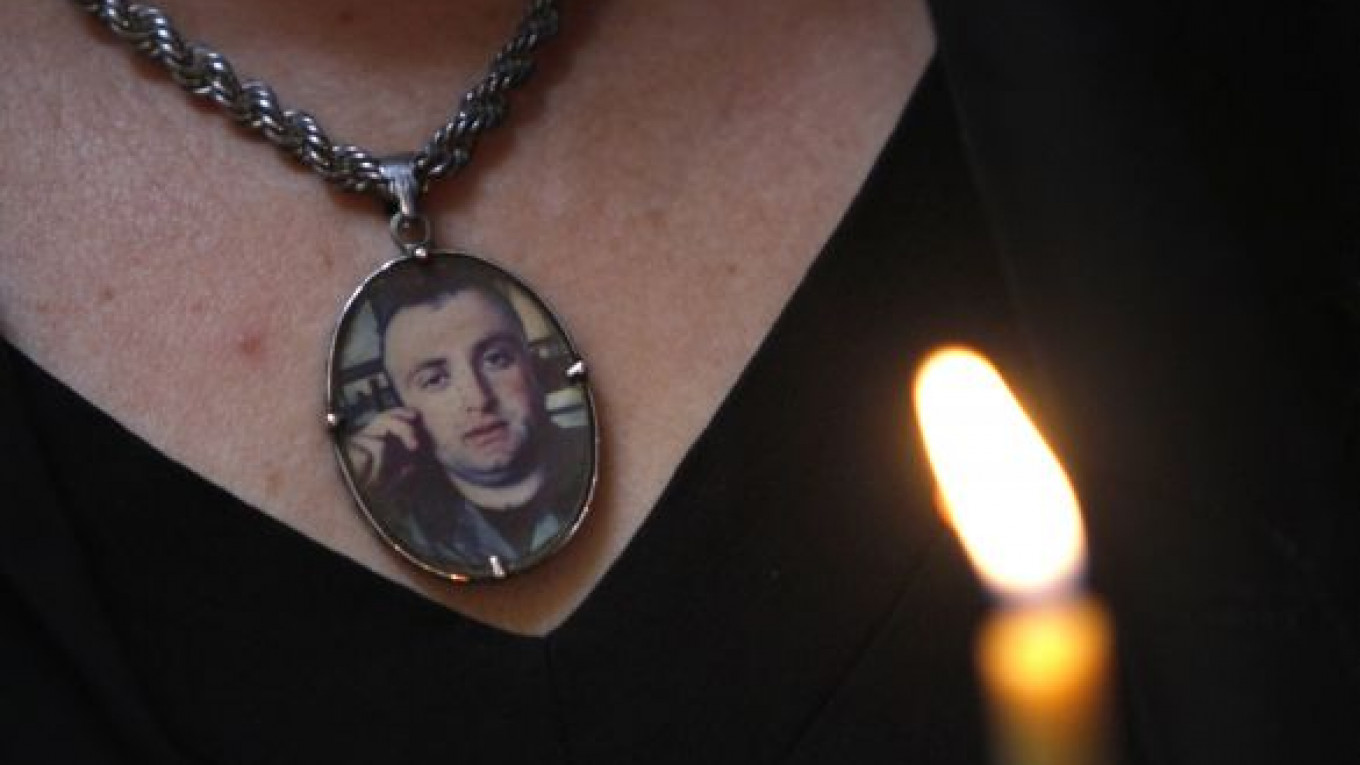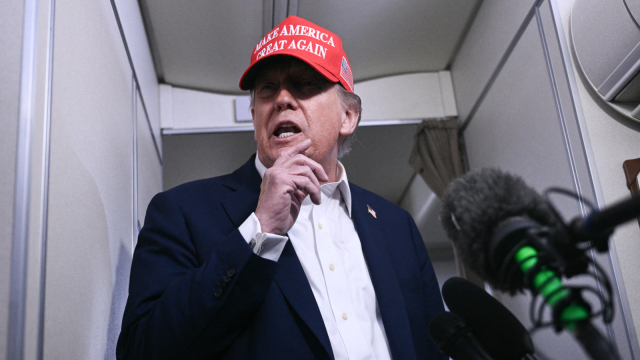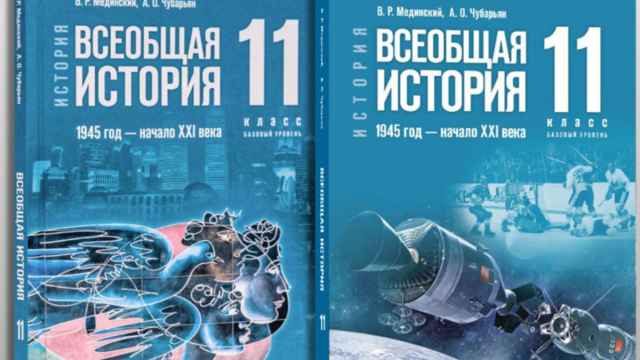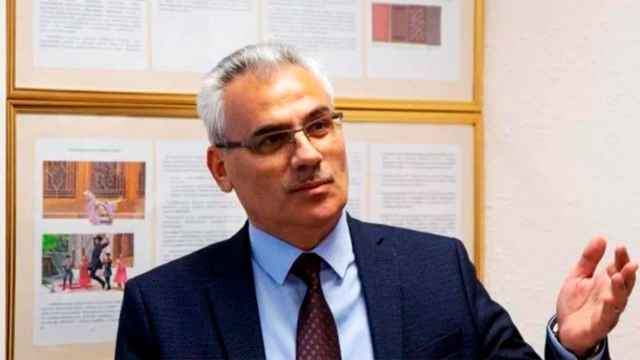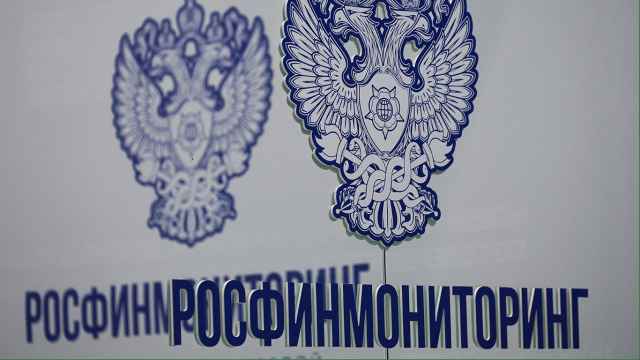Russia's top diplomat called Georgia's president "a pathological case" who was "very badly brought up" on Monday, signaling no easing of tensions between Moscow and Tbilisi on the third anniversary of the brief 2008 war over South Ossetia.
As a token gesture of goodwill, a Russian air carrier started regular flights between Moscow and Georgia's city of Kutaisi. But Georgian diplomats faced expulsion from offices in downtown Moscow where electricity was cut off last week.
President Dmitry Medvedev visited an Interior Ministry special forces brigade that fought in the 2008 war, praising the troops for resisting the "aggressor" and decorating 77 soldiers with awards, including one posthumously, the Kremlin on its web site.
Georgian President Mikheil Saakashvili responded by laying flowers on the graves of Georgians killed in the war and meeting with their relatives, local Rustavi-2 television said.
Medvedev also asked the State Duma to ratify an agreement to place a Russian military base in another breakaway Georgian province, Abkhazia. The deal, signed last year, will not be approved until after the legislature reconvenes in the fall.
The five-day war, which began with a Georgian offensive on South Ossetia after months of provocation by Russia, resulted in Moscow moving its forces into the separatist region and repelling the attack. Moscow recognized the independence of South Ossetia and Abkhazia weeks after the clash, which was ended with France's mediation.
"Tension is growing again between Russia and Georgia," the International Crisis Group, an influential Brussels-based think tank, Monday. It called on the countries, which severed formal diplomatic ties following the war, to begin a direct dialogue.
But Foreign Minister Sergei Lavrov said Russia would never deal with Saakashvili.
"We will have no dealings with a man who gave the criminal order to kill peacekeepers and ordered the death of peaceful civilians, including Russian citizens," Lavrov told reporters in Moscow.
"Saakashvili is, of course, a pathological case and an anomaly among the Georgian people. He is clearly very badly brought up," he said.
He also accused Saakashvili of "dreaming up fairy tales" about what caused the war, which Moscow and Tbilisi each say the other started.
His remarks echoed Medvedev, who told Georgian media in a rare interview last week that he would "never forgive" Saakashvili for purportedly starting the war.
The Investigative Committee, which is conducting a probe into the conflict, on Monday allegations of war crimes committed in South Ossetia by the Georgian military, which Moscow said were what prompted it to intervene in 2008.
The Georgian attack amounted to attempted genocide against the South Ossetian population, the committee said in a statement that also accused Georgian investigators of refusing to cooperate in the inquiry.
The committee said it has reviewed some 600 complaints by Georgian citizens who accused the Russian military of war crimes and found them all groundless.
Georgia did not respond immediately to the Russian investigation.
The Georgian Foreign Ministry said, meanwhile, that Russia was planning a new war, citing as proof several attacks in Georgia in recent months that it blames on Russian secret services.
"It's evident that the Russian Federation has not abandoned its plans to conduct a new full-scale military attack against Georgia," the ministry said in a statement carried by Interfax.
The ministry added that Georgia was still looking for a peaceful solution to the conflict and was ready for talks without any preconditions.
The countries also appeared no nearer to resolving a related dispute on Russia's entry into the World Trade Organization, which Georgia, already a member, has to approve. Tbilisi demands control over customs on the Abkhaz and South Ossetian borders, and reiterated its stance Monday.
"It's up to Russia to agree on transparency over customs checkpoints in South Ossetia and Abkhazia, and then it will become a member of the WTO," Georgian Deputy Foreign Minister Sergi Kapanadze told Bloomberg.
Russia and Georgia will meet in Switzerland next month to discuss Russia's WTO membership.
In a rare improvement in economic ties, Russia's S7 airline began regular charter flights between Moscow and Kutaisi, a route suspended in August 2008. The airline resumed its flights to Tbilisi last fall.
The Georgian interests section at the Swiss Embassy in Moscow was also able on Monday to resume operations, interrupted last Thursday over electricity being cut off to its offices in the downtown Ostozhenka business center, RIA-Novosti . After the severance of diplomatic ties, Swiss embassies handle Georgia's affairs in Moscow and Russia's affairs in Tbilisi.
Ostozhenka's owner, RusInvestProyekt, said had it turned off the power because of unpaid bills but backtracked because unpaid bills "should not affect the issuance of visas to citizens."
But the section is to be evicted from Ostozhenka within a month because it occupies the premises without a lease, said Oleg Anikiyev, head of RusInvestProyekt. He did not comment on the disruption to visas that the eviction might cause.
A Message from The Moscow Times:
Dear readers,
We are facing unprecedented challenges. Russia's Prosecutor General's Office has designated The Moscow Times as an "undesirable" organization, criminalizing our work and putting our staff at risk of prosecution. This follows our earlier unjust labeling as a "foreign agent."
These actions are direct attempts to silence independent journalism in Russia. The authorities claim our work "discredits the decisions of the Russian leadership." We see things differently: we strive to provide accurate, unbiased reporting on Russia.
We, the journalists of The Moscow Times, refuse to be silenced. But to continue our work, we need your help.
Your support, no matter how small, makes a world of difference. If you can, please support us monthly starting from just $2. It's quick to set up, and every contribution makes a significant impact.
By supporting The Moscow Times, you're defending open, independent journalism in the face of repression. Thank you for standing with us.
Remind me later.


